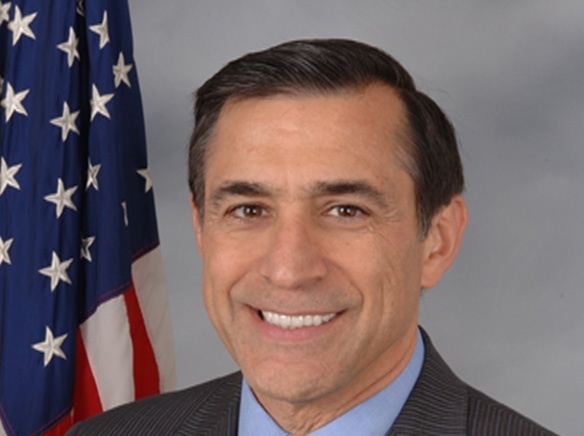The San Diego Regional Chamber last week held an international business affairs forum, Building an Innovative Workforce Through Comrpehensives Immigration Reform, with featured speakers San Diego Board of Supervisors Chair Nora Vargas and State Delegate of the National Migration Institute of Mexico in Baja California David Perez-Tejeda. The purpose of the forum was to discuss migration efforts and opportunities for migrants in the workforce.
Vargas said the work between San Diego and Mexico, and the collaboration, the camaraderie, and the power of the binational community, the momentum now has never been seen in this region and in the country.
“I think that all of us together can really begin to change and have a different conversation of what our border region is,” she said. “I am beginning to lay the groundwork to have these conversations that go beyond immigration, but also the workforce component of what we are doing.”
Vargas said it is important to have a conversation on how to build a future workforce and how it is related to immigration reform.
“There is the work and policy that has to happen from immigration reform as it relates to our asylum seekers, our refugees, our undocumented community, who need to be integrated into the San Diego region,” she said. “At the same time, having a conversation (about) the economic impact of our workforce.”
Vargas said it needs to be done in a way that can be seen in Washington D.C., which do not understand the power of the binational workforce in this region.
“As we sit at the Pacific Rim and the Baja-California region, I believe that we are the future of this country,” she said. “When you talk about the seven million of us who understand the power of this community and the economic impact that we have, I think it is powerful. Twenty billion dollars of San Diego’s production each year is guided by Tijuana. Our trade is consistently at $6.4 billion a year. The part we do not talk about, which I think is extremely important, is that 50 million people cross the border between San Diego and Tijuana, but really about the people who cross the border every day. And I was one of those people who crossed the border every day to go to school. There are so many of us who have the privilege to do that. That is a very different conversation we must have.”
Vargas said the people who cross every day for school, work, travel, must be put into context in a favorable way. She said she believes due to unaffordable housing and costs of living, that if Americans did not live in Tijuana, she believes that the high homeless count we already have would be much higher. She said that a good look also must be looked at the displacement of people in Tijuana due to gentrification as the city continues to grow.
“When we are talking to people in Washington about the border wait in Tijuana, the impact of the border wait, and many think that these issues should only be cared about by the people who live at the border,” she said. “But these are reasons that anyone who lives in the region of San Diego or our state need to care about. In the end, people are going to work to the northern part of San Diego, East County, so the flow of people coming back and forth is so important. This is a regional flow of goods and services of human capital that is so significant economic drive for the region, that it is extremely important that we do not forget that is why our communities thrive. To us to be sustainable, equitable, in the workforce, we need to take all those into consideration as we move forward.”
Perez-Tejeda said according to Mexico’s laws and international agreements, there is an agency in charge of facilitating and supervising all legal and migratory procedures taking place in Mexico. He said the agency has presence in all ports of entry withing the border starting from the San Ysidro port of entry, presence at all the airports in the border region, and the Ensenada cruise port, and the migratory stations, which the “U.S. Border Patrol calls detention center.”
“We have a more humanitarian side in Mexico on this issue of migratory stations, mostly because we have a lot of supervision from human rights organizations, and also because of court rulings and other dissertations,” he said, adding they had two offices that deal with the people who have been deported from the U.S. into Mexico.
Perez-Tejeda said in 2021/22 there was a large influx in Mexico due to the pandemic and Title 8 which turned away migrants from the U.S. border.
“There are more than 15,000 openings right now in Baja-California available for people to work,” he said. “In Mexico law, the federal labor dissertation, you can hire 10% of foreigners in your company.”
Perez-Tejeda said many Americans come to its offices to get permanent and temporary residency cards, but most people that come to their offices are from Haiti, with many of them working in the local industry.
“Our people from Central America and South America are being hired by companies,” he said. “There are also many Asians coming here as experts in technical industries.”
Perez-Tejeda said humanitarian visas are given to people for refugees and people looking for political asylum. He said they can apply for residency, and if they get married or have children in Mexico, they automatically get permanent residency.
Perez-Tejeda said they are trying to make bringing companies to Mexico as easy as possible, with most requirements being able to be handled online through the government’s website.
“As a company, we are facilitating that they can come through a specific window where we will give special attention to people who want to hire foreigners, to help people who are trying to cross irregularly, or illegally, into the U.S. We want to keep people in Baja- California.”














